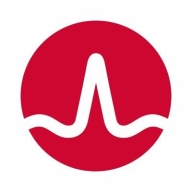

DX NetOps and Azure Bastion are both in the network management and security category. DX NetOps holds an advantage in scalability and analytics due to its comprehensive monitoring, whereas Azure Bastion's strong security integration within Azure gives it an edge for Azure-centric organizations.
Features: DX NetOps offers robust network monitoring capabilities, predictive analytics, and efficient fault management. Its visibility across diverse network environments enhances its network monitoring effectiveness. Azure Bastion provides secure and seamless remote access to virtual machines, integrates deeply with Azure services, and focuses strongly on security.
Room for Improvement: DX NetOps could improve in deployment simplicity and reduce the complexity of infrastructure assessments. It also needs to streamline integration processes with non-native systems. Better pricing options might attract a broader audience. Azure Bastion can enhance its analytics capabilities to match those of more dedicated monitoring tools. Expanding support for multi-cloud environments and offering richer troubleshooting tools would improve its usability outside Azure-centric setups.
Ease of Deployment and Customer Service: DX NetOps involves a complex deployment process requiring compatibility assessments but benefits from strong support channels. Azure Bastion provides straightforward deployment within Azure, supported by extensive Microsoft documentation and support, making it easier for Azure customers.
Pricing and ROI: DX NetOps has higher upfront costs, justified by its extensive monitoring capabilities, leading to insights that drive long-term savings. Azure Bastion offers a predictable cost model through Azure subscriptions, providing considerable value in security and integration for those within the Azure ecosystem. Despite its cost appeal, DX NetOps is often viewed as offering a higher ROI for businesses needing detailed network analysis.
We have noticed savings of approximately twenty percent by using Azure Bastion compared to VM pricing.
It can save you the cost of the product by reducing expenses and downtimes in 12 to 18 months.
Support is satisfactory but with room for improvement, primarily concerning data transfer issues.
We usually get backup within two hours.
Everything about DX NetOps is perfect, including the interface, technical support, and pricing.
Creating a support case based on priority allows for immediate responses.
They are fast, responsive, and have technical expertise.
It is designed to provide access over a private network without hitting the internet.
The product is very scalable, to the maximum.
Azure Bastion is stable.
I rate the stability of the product as ten on a scale of one to ten, indicating that it is very stable.
A storage solution must be created to transfer data, and this requires additional permissions like ACL or NFS.
I would like to see integrated AI features with Azure Bastion, especially for connectivity issues.
It would be nice to have the capability to cut and paste across desktops, similar to old-fashioned Remote Desktop emulation.
Different communication methods such as agent-based connections, TCP/IP, or secured connections are necessary—features not currently available in DX NetOps and Spectrum.
DX NetOps is somewhat convoluted, and some of the programming constructs can be documented or driven through languages such as Python, Perl, and shell scripting, but they have their proprietary language, which may not be very user-friendly.
I would particularly like it to integrate with the Symantec portfolio and the Carbon Black portfolio.
Microsoft's pricing is on the higher side and could be more competitive.
The price is not necessarily cheaper, but it is acceptable.
The licensing cost of DX NetOps is expensive, not very affordable, and on the top of the price range in the market.
I think the pricing is expensive.
Azure Bastion eliminates the need for a jump server by providing secure access to servers without hitting the public network.
We use Azure AD integration to specify who has access and what they can do.
The security is the main reason we use Azure Bastion because it is integrated with Azure Active Directory, ensuring that access is secure.
The product features include automation through AI, allowing out-of-the-box analysis of performance data, building baseline trends, and enabling configuration of dynamic thresholds relative to collected data.
The best features I've seen so far with DX NetOps are that it can work with large scale systems, and it has a lot of functionalities and matrices.
The most valuable feature in DX NetOps is the topological view, which is the network topological view.
| Product | Market Share (%) |
|---|---|
| DX NetOps | 0.7% |
| Azure Bastion | 0.4% |
| Other | 98.9% |

| Company Size | Count |
|---|---|
| Small Business | 5 |
| Midsize Enterprise | 1 |
| Large Enterprise | 6 |
| Company Size | Count |
|---|---|
| Small Business | 4 |
| Midsize Enterprise | 1 |
| Large Enterprise | 5 |
Azure Bastion is a service you deploy that lets you connect to a virtual machine using your browser and the Azure portal. The Azure Bastion service is a fully platform-managed PaaS service that you provision inside your virtual network. It provides secure and seamless RDP/SSH connectivity to your virtual machines directly from the Azure portal over TLS. When you connect via Azure Bastion, your virtual machines do not need a public IP address, agent, or special client software.
DX NetOps by CA Technologies, a Broadcom company, improves your time to value through advanced AI capabilities and unified network visibility that delivers simplified NetOps intelligence into the user experience that traverses modern architectures. DX NetOps accomplishes this through high scale, unified network monitoring that enables full-stack analytics for assuring traditional and modern architectures. DX NetOps converts inventory, topology, device metrics, faults, flow and packet analysis into actionable intelligence for network operations teams. Complimented by our AIOps solution, DX NetOps enables IT teams to establish proactive, autonomous remediation capabilities across the applications, infrastructure, and networks that fuel superior user experiences.
We monitor all Network Monitoring Software reviews to prevent fraudulent reviews and keep review quality high. We do not post reviews by company employees or direct competitors. We validate each review for authenticity via cross-reference with LinkedIn, and personal follow-up with the reviewer when necessary.